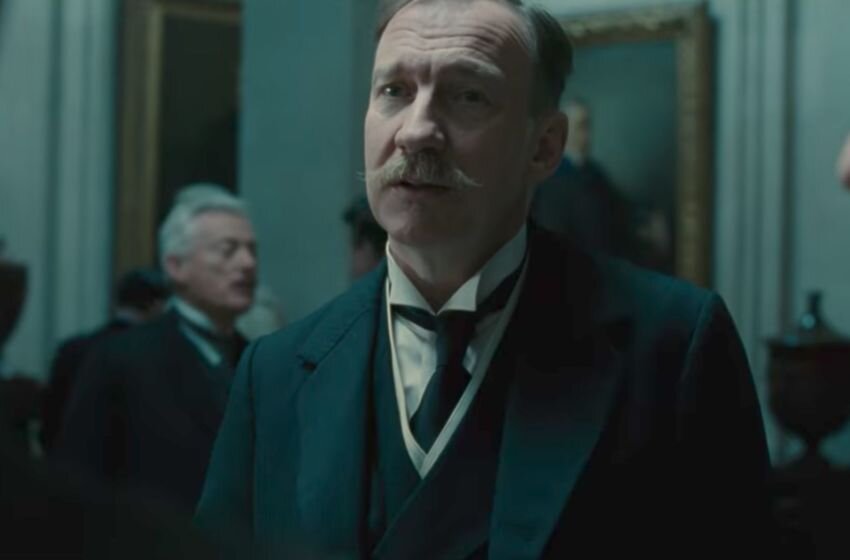I Didn’t Love Wonder Woman (But Do I Need To?)
Yesterday afternoon, I saw Wonder Woman with my family and left disappointed, for complicated reasons. It was impossible for me — and thousands of others, I’m sure — to go into watching this movie without an overwhelming awareness of its significance for women in Hollywood. Patty Jenkins is only the second female director to be given a budget over $100 million, and Wonder Woman is the first superhero film to feature a heroine. As such, I felt immediately that I had to love this film. I wanted so, so much to love it and to have all my friends and family love it. But I didn’t.
First off, the design of the main villain was pathetic. David Thewlis — a rather scrawny and soft-spoken guy with a goofy moustache — was about the least intimidating actor possible for the role. This man is supposed to be Ares, the God of War. Even when he dons his armour, his lines and delivery were caricatural. I found him laughable, and even the reveal wasn’t much of a reveal. My little brother picked him out as the antagonist about a minute after he first appeared onscreen.
Besides, all I could think about each time I saw his face was, “Professor Lupin!”
More importantly, I simply found the character unnecessary. How powerful would it have been to have no Ares at all? To have the struggle be between the good and bad in all people? For a moment — the best part of the movie for me — I thought that was where this was going. Steve Trevor tells Diana that though it’s easy and tempting to just blame one person, that’s not how humanity works; blaming an individual just absolves everyone else of guilt and allows us to avoid self-reflection. Steve continues, saying that regardless of whether we’re appreciated or deserved, we should still strive to act on what we believe in. I found this to be such a strong message, which would’ve tied in perfectly with the film’s theme of combatting hatred with compassion — but then they turned around and did blame it on one bad guy. The war ended when he died, and I could’ve cried at the lost opportunity.
Furthermore, I couldn’t ignore that for all her sorrow and sympathy for the wounded soldiers and broken families, not once was a thought spared to the deaths of the opposing side. Germany (and Austria-Hungary and the Ottomans and all the “others”) lost millions of young lives too — and Wonder Woman eagerly added to that count. Though there were some glimpses of equating both armies (“Ares has corrupted you too!”), they were fleeting and unexplored. The conflict throughout felt way too black and white.
Finally, I couldn’t handle the two-day Disney princess love story and how it ended up being the key to unleashing Diana’s divine power. Though cheesy throughout, I wouldn’t have cared if it hadn’t played such a defining role. The film’s concluding message of “love conquers hatred” came out of nowhere; the only instance of love developed in the story was the fleeting, superficial romance, making the theme rather forced and sudden.
All I could feel coming out of the film was disappointment. I had been rooting so hard for it, and yet it felt… average.
And that’s when it hit me. I was holding this movie to a ridiculously high standard. The vast majority of action films could probably be critiqued in the same ways, and half of them wouldn’t even match this one. Wonder Woman’s action scenes were beautiful, compelling, and creative. I absolutely loved all the shots on the beach and island. Gal Gadot was charismatic and captivating. The costume design was fantastic. Ludendorff and Doctor Poison were appropriately terrifying as antagonists. Many parts of the film were fun — what you’d expect from a typical superhero movie. But I didn’t want it to be a typical superhero movie. I wanted it to be the best one, to prove to myself and to my family and to the world that a female-directed action film starring a woman could be right up there with the best.
Some people do consider this film among the best — the reviews have been outstanding — but personally, Wonder Woman isn’t anywhere near The Winter Soldier or Guardians of the Galaxy for me. However, that really doesn’t matter, because it shouldn’t have to be. Male-directed action films starring white men have gotten decades’ worth of chances. They didn’t need to be outstanding the first time. They could fail, and learn from each other’s mistakes, and fail again. They never experienced the pressure to do well like this one did — a pressure that the film took on and overcame. It took thousands of men dozens of tries to get something as good as Winter Soldier. It was unreasonable to expect Wonder Woman to do the same — to meet and exceed everyone’s expectations — in just one film.
And that is precisely why I do need to support it. I may not love it, but I will still urge people to go see it. I will root for its ratings and cheer at its box office success, because that is the only way in this unequal, capitalistic world that we will ever see more female and minority leads onscreen. It’s the only way we’ll get any chance to be better.




